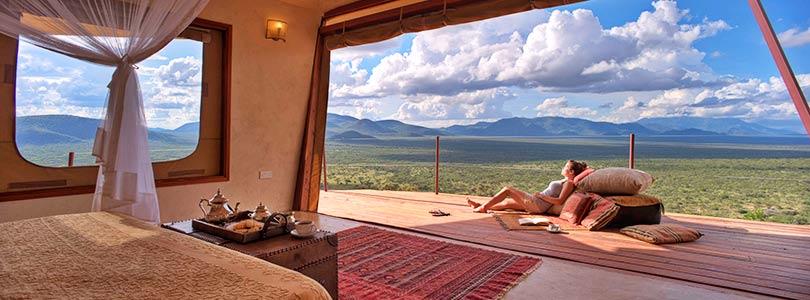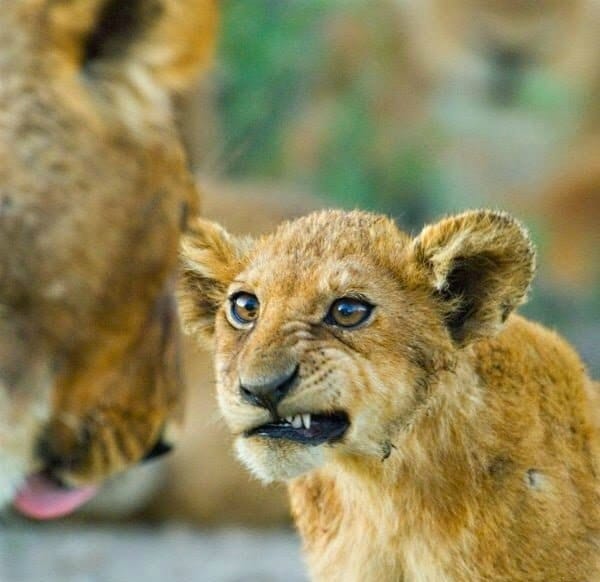Recommended Facts On Picking Kenya Watamu Marine National Park
Wiki Article
What Safety And Security Precautions Should I Be Aware Of Prior To My Trip To Mombasa Kenya?
To enjoy a stress-free trip to Mombasa Kenya It is vital to think about safety and security. These are the top items to be aware of.
1. General Security
Be informed: Make sure to stay up-to-date on the latest local news, and also any travel warnings from your country.
Register with Your embassy: If required, sign up at your embassy in Kenya in order to receive assistance in an emergency.
2. Health Precautions
Immunizations: Make sure you're current on your routine vaccinations and look into additional vaccines, such as Hepatitis A, Hepatitis B, Typhoid, and Yellow Fever.
Malaria Prevention: Mombasa is a malaria-endemic zone. Make use of antimalarial medicines, insect repellents, wear long sleeves in the evening and rest under mosquito nets.
Food and Water Safety Make sure you drink only water that is bottled or that has been boiling. Avoid eating ice cubes, and eat food that is cooked properly. Be cautious with street food.
3. Personal Security
Avoid walking alone at night: stay in areas that are well-lit and populated. Avoid walking along the beach or in areas that are secluded after the darkness.
Protect your valuables. Make use of hotel safety box for depositing valuables such as money and passports. Avoid displaying expensive items like jewellery or electronic devices.
Make sure you use reputable transportation: Select certified taxis or ride-hailing companies. The hotel may also arrange transport. Beware of taxis that aren't identified.
4. Local Laws and Customs
Respect local culture: Dress modestly when you visit religious sites. Be aware of local traditions.
Kenyan drug laws are extremely strict, and they carry harsh penalties. Avoid involvement with illegal drugs.
Photographers should always ask for permission before taking pictures of people or military and government structures, particularly in rural areas.
5. Beach Safety and Water Safety
Swimming safely. Be aware of the local guidelines. Use designated swimming areas.
Marine wildlife: Keep an eye out for marine animals like jellyfishes and sea urchins. If you walk along the beach, make sure you wear suitable footwear.
6. Crime Prevention
Petty crime: In crowded areas, pickpocketing and bag-snatching may occur. Be on guard and keep your possessions close.
Scams: Be cautious of strangers offering help that seems too generous or offers that are too tempting to be real. Use licensed tour agents.
It is important to know local emergency phone numbers for police (999), fire (999) and ambulance (999). Always keep the contact details of the consulate or embassy handy.
7. Natural Hazards
Weather: Mombasa enjoys a tropical climate, with the potential for heavy rainfall and flooding. This is especially the case during rainy seasons, April-June and from October to November. Be informed of weather forecasts.
Sun Protection Sun Protection: Wear hats and apply sunscreen to avoid the sunburn as well as heat exhaustion.
8. Travel Insurance
Comprehensive Coverage: Ensure you have travel insurance that covers medical emergency situations, theft, loss, and travel disruptions. Check if your insurance plan covers water sports or other activities you plan to engage in.
If you think about these safety and Security concerns, you will enjoy a better holiday in Mombasa. See the most popular kenya holiday packages for blog advice including tours & safaris, african safari kenya, african safari kenya, safari tour, safari excursions, mombasa tour companies, beach in mombasa, safari mombasa kenya, tour firms in kenya, travel tour companies and more.

What Are The Weather Considerations Should I Be Aware Of Before A Trip To Mombasa Kenya?
Knowing the weather patterns of Mombasa is essential for packing your bags and getting the best enjoyment of your vacation. Here are the main factors to consider when planning your trip.
1. Climate Overview
Mombasa has a tropical climate that is humid and hot year-round. You can expect warm weather, with temperatures that typically range from 24 degrees Celsius (75degF) up to 32degC (90degF).
2. Seasons
The Hot and Humid season (November-April) is characterized by extreme temperatures and high humidity. It is also a busy tourism season, especially during December and January.
Long Rains April to June: The rainy seasons can bring heavy rains, and sometimes thunderstorms. It is possible that roads become muddy. This is a time of low demand for tourism.
Cooler season (June to Oktober): The temperatures and humidity levels are the lowest during this time. The weather in general is pleasant, which makes it the ideal time to enjoy outdoor activities.
Short Rains (October-November): This period is characterized by shorter, less intense showers of rain. Rain showers tend to be short, and then later followed by bright sunlight.
3. Tips for packing
Lightweight Clothing: Bring lightweight clothes that are breathable like linen and cotton, so that you can stay cool during humid weather.
Rain Gear: If you travel during the rainy season, you should bring an umbrella as well as a waterproof jacket as well as some shoes that are waterproof.
Sun Protection: Sunscreen with an SPF of high, a wide-brimmed hat sunglasses, and light clothing that protects your skin aid in protecting your skin from the harsh sun.
Wear your swimwear and wear your swimwear whenever you go to the beach or hotel pools.
4. Weather-specific activities
Beach Time: The best time to enjoy beach activities is during the cooler months (June through October) when the weather is warm and the conditions for swimming are ideal.
Water Sports: The cool, clear water of November to February is ideal for diving, swimming snorkeling and other water sports.
Wildlife Viewing The cooler months (June to Oct) are the ideal time for safaris and excursions into the wild, since it's more relaxing.
5. Health Considerations
Hydration is important during this humid and hot weather. Make sure you drink plenty of water especially when you are spending time outdoors.
Heat-Related Infections: Be aware that heat exhaustion and heatstroke are possible. Take breaks in the shade, dress loosely and avoid strenuous exercise during peak heat.
6. Travel Adjustments
Travel during the rainy seasons It is important to be prepared for delays in travel when you travel during this period. Certain roads might be closed and outdoor activities may be restricted.
Rainstorms that cause delays to flights can cause delays to flights. Be aware of your travel schedule and have contingency plans.
7. Environmental Besorgnization
Natural hazards. Be aware of the risks that can be posed by heavy rain. Be aware of forecasts for local weather and adhere to safety guidelines.
Be mindful of the tides. They can be unpredictable and can significantly impact beach activities. Consult your local tide schedules prior to swimming or beachcombing.
Knowing what you can anticipate from the weather conditions in Mombasa it will help you plan and prepare for your trip, pack safely, and have a safe time. See the recommended kenya safari packages prices for site recommendations including tour mombasa, safari tour, mombasa travel agency, tours and safaris, tour company in kenya, tour firms in kenya, mombasa packages, kenya safaris and tours, safari tour, mombasa tour companies and more.

What Environmental Responsibilities Should I Be Aware Of While On My Holiday In Mombasa Kenya?
To protect the natural beauty and variety of Mombasa in Kenya it is crucial to be eco-conscious. Here are some important considerations for the environment:
1. Sustainable Accommodation
Eco-Friendly Hotel: Select accommodations that are committed to sustainability. Find eco-labels, certifications and certifications, like Ecotourism Kenya.
Participate in hotel initiatives that promote conservation of water and energy. Reuse your towels and linens. When not in need shut off lights and air conditioning.
2. Responsible Wildlife Viewing
Respect wildlife. Keep the distance of animals to ensure that you do not disrupt them. Follow the instructions provided by the guide.
Do not feed wildlife. Feeding animals can disturb their natural diet.
Leave No Track: Don't litter in parks or wildlife reserves. Remove all trash and dispose of them in a proper manner.
3. Plastic Reduction
Reduce your use of plastics by avoiding single-use plastics. Carry a water bottle, reusable bag, and tools.
Help local initiatives locally. Participate in beach clean-ups at your local beaches or organizations that work to reduce plastic contamination.
4. Water Conservation
Use Water Wisely: Mombasa experiences water scarcity problems. Make shorter showers and turn off the water taps when you are not in use.
Eco-friendly Products: Choose biodegradable and eco-friendly toiletries to reduce the impact on water quality.
5. Energy Conservation
Reduce energy consumption: Unplug electronic devices when they are not in use, and reduce the use of air conditioners.
Choose hotels and tour operators that make use of renewable energy sources.
6. Sustainable Transportation
Public Transport: Reduce your carbon footprint whenever you take public transport, like matatus, buses and other forms of public transport.
Alternatives to go green: Think about hiring bicycles, or walking short distances. Some cities have eco-friendly Tuk-tuks.
7. Helping Local Businesses
Buy Local: Support your local economy by buying products and food items from local artisans and vendors.
Fair Trade: Select products that have been deemed fair trade to ensure that local producers receive fair compensation.
8. Environmental Education
Learn and Share. Learn more about local environmental issues and conservation efforts. Share with others what you discover to increase awareness.
Respect Local Cultures : Understand and respect local traditions, practices, and beliefs that are related to the conservation of the environment.
9. Marine Conservation
Snorkeling and Scuba diving Be cautious not to step on coral reefs. To safeguard marine life, use reef-safe sunblock.
Don't dispose of waste in the ocean. Participate in or support marine conservation programs.
10. Ethical Souvenirs
Avoid Wildlife Products. Do not purchase items made of endangered species such as tortoiseshell and ivory.
Sustainable Materials: Select items made of sustainable or recycled materials.
11. Take part in conservation Activities
Consider volunteering in community tourism or conservation projects.
Support NGOs: Donate money to or support local NGOs and conservation groups that work to protect the environment.
12. Responsible Travel Practices
The size of the group: Traveling in small groups reduces the environmental impact.
Eco-Tours - Select tour operators who are committed to eco-friendly and sustainable practices.
Help protect Mombasa's natural resources by bearing the environmental responsibility in mind. It will guarantee that the beauty of the region and its diversity are protected for the next generation. See the top rated airport transfers kenya for blog tips including tour firms in kenya, kenya tours, mombasa safaris kenya, kenya tours and safaris, travel tours in kenya, tours and safaris, safari trips in kenya, cheap kenya safari packages, safar kenya, kenya tourism and more.
